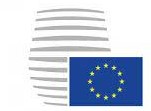The revised regulation is a clear change of paradigm for the digital identity in europe. Its aim is to ensure that individuals and businesses across europe have universal access to an identification and authentication transactions.
According to the new law, member states give citizens and businesses wallets digital their identities will be able to link national digital evidence from other personal attributes (for example, driving licence, qualifications, bank account) will enable citizens. proof of identity and share electronic documents from their digital wallets, using their mobile phones.
The new european portfolios of digital identity (EDIW) will allow all citizens access to online services with its national digital identification, which will be recognized throughout the eu , without having to use private identification methods or share personal information. The control of the user guarantees that only share the information that should be shared.
Main elements of the revised rules of procedure
The co-legislators had the overall thrust of the commission's proposal for an improved framework which will improve effectiveness and expand the benefits of a digital identity safe and convenient to the private sector and the use phone. The interinstitutional discussions strengthened the legislation in several areas that are important for citizens. The wallet will contain a control panel for all transactions accessible to its owner both online and offline, will be possible to report violations of the data protection and interaction between wallets. In addition, citizens may incorporate the wallet to national systems of existing electronic identification and benefit from free electronic signatures for professional use. The main elements of the revised law can be summarized as follows:
- To 2026, each member state must provide its citizens a wallet digital identity and accept EDIW of other member states in accordance with the revised scheme.
- Provisions have been sufficient safeguards to prevent discrimination against anyone who chooses not to use the wallet, which will always be voluntary.
- The business model the wallet: the issuance, use and revocation will be free of charge for all natural persons.
- the validation the electronic certification of attributes: member states must provide free validation mechanisms for only to verify the authenticity and validity of the wallet and of the identity of the parties who trust
- The code of the portfolios: components of the application software will be open source, but member states will have room for manoeuvre so that, for justifiable reasons, not be necessary to disclose specific components other than those installed in the devices of users.
- It has ensured consistency among the wallet as a form of electronic identification and the scheme under which is broadcast.
Finally, the revised law clarifies the scope of the authentication qualified certificates of websites (QWAC), which ensured that users can verify who is behind a website, while preserving the rules and standards of current security well-established industry.
Next steps
The revised regulation will appear in the official journal of the eu in the coming weeks and will enter into force 20 days following its publication. The regulation will be implemented completely in 2026.
Background
In june 2021, the commission proposed a framework for a european digital identity would be accessible to all citizens, residents and companies of the eu via a wallet of european digital identity. The new framework amending the regulation of 2014 on electronic identification and confidence for electronic transactions in the internal market (regulation eIDAS), which laid the foundation to securely access to public services and online transactions and across borders in the eu.
The regulation requires that member states commit themselves to a digital wallet on a system of electronic identification notified, based on common technical standards, after a mandatory certification. to set the necessary technical architecture, accelerate the implementation of the revised rules of procedure, provide guidance to member states and avoid fragmentation, the proposal was accompanied by a recommendation for the development of a toolbox of the union to define the technical specifications of the portfolio. After interinstitutional negotiations ('trialogues'), the two colegislators reached an initial interim agreement on the key elements of the dossier on 29 june 2023, which ended on 8 november 2023. Romana Jerković (S , HR) was the european parliament rapporteur for this dossier.
Links
- Revised regulation establishing a european framework for digital identity (eID), 26 march 2024
- The council and parliament reach agreement on a european digital identity (eID) (press release, 29 june 2023)
- Regulation eIDAS, overall orientation of the council, 6 december 2022
- Regulation eIDAS revised commission proposal, 3 june 2021
- A digital future for europe (general information)
- Europe ready for the digital era, information from the commission













